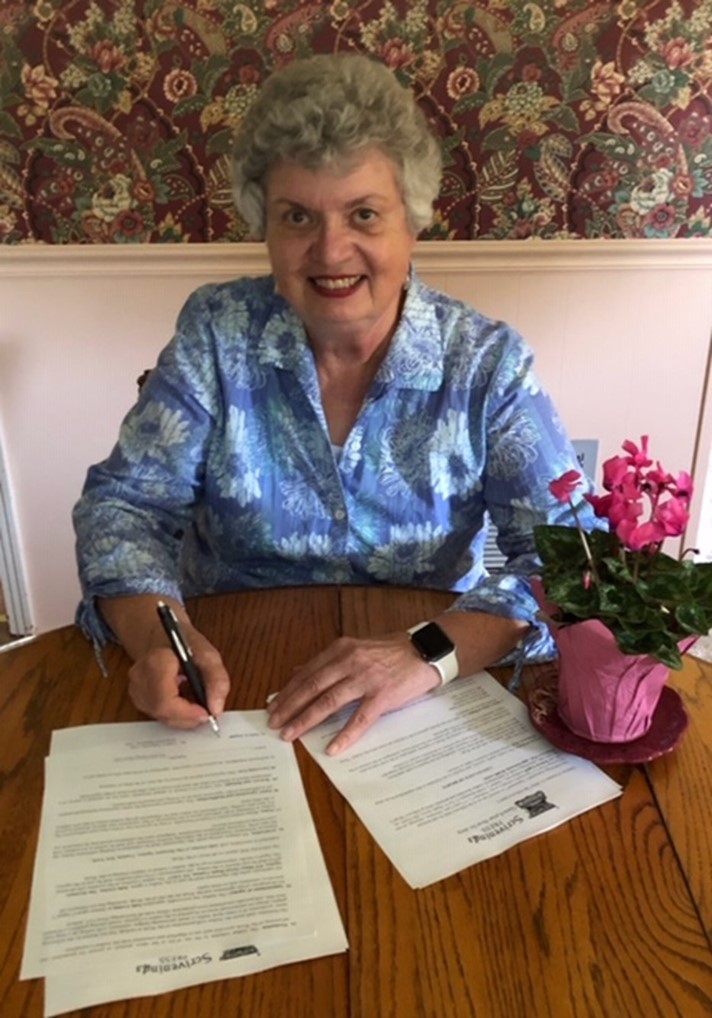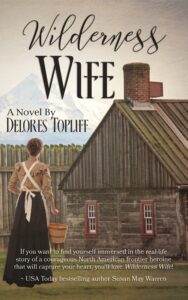by Delores Topliff, @DeloresTopliff

Books carry us to other times, places, and provide lasting friends—especially nice during pandemics. Coffee mugs and shirts present pictures and words saying, “You can never have too many books.” Or, “You can’t buy happiness, but you can buy books—and that’s kind of the same thing.” I agree! (I won’t show you photos of how many books I own.)
Favorite books also help us learn to write. Even subconsciously, we notice and remember pleasing, effective descriptions and writing styles. We adopt and re-use them like buying and dabbing on preferred perfumes. Favorite turns of phrase lodge in our brains and create paths to find words to tell something exactly right.
Characters react by a tightening of their lips, a nervous eye tic they can’t control, or repeatedly twist a lock of their hair around a finger. The anti-hero’s voice might become hoarse when he lies, so he clears his throat and starts his sentence again while his face grows redder (or paler). He holds his hat by its brim and rotates it in his hands until even he notices his distracting gesture and claps his hat back on his head.

In one of Susan May Warren’s early writing retreats, she told us that she kept and filled notebooks by jotting down effective words. I recall her saying she saved particularly apt verbs, adjectives, and phrases that described traits or actions just right. Her notebook lessons were solid gold because she’s now a very multi-published author known for crafting books filled with fast-paced, highly visual, perfectly worded characters, scenes, and actions.
What’s your best method for fine-tuning character portraits or emotional responses? Or polishing descriptive scenes so well they stay sharp and clear in readers’ minds as we picture them again and again?
My ninth grade English teacher gave us each our own Thesaurus and opened up a richer world to us. What’s your favorite book? How does it build characters and scenes so effectively, you always remember them?
If you’re already keeping a notebook or list of effective words, great! If not, start today. It’s a powerful system to keep your dialogue crisp and bring your scenes and characters to vivid life.
We can never store up too many choice words. Besides being sharp arrows in our quiver for successful writing, they also give us the skills to excel at Scrabble, Bananagrams, or become future Jeopardy winners.
Delores Topliff’s third historical novel, Wilderness Wife, was released by Scrivenings Press on Feb. 15, 2022.
Set in frontier Canada in 1810, Marguerite Wadin MacKay believes her 17-year marriage to explorer Alex MacKay is strong—until sudden fame destroys it. He returns from a cross-Canada expedition to announces their frontier marriage is void in Montréal where he now goes to make his fortune and choose a society wife—not one with native blood. She thinks her life is over but trusts God to chart a life for her girls.
Topliff’s earlier novels are Books Afloat, a WWII historical, and Christmas Tree Wars about two feuding Wisconsin Christmas tree farmers whose niece and son try to generate revenue by competing to provide the White House Christmas tree–and in the process, rediscover the reason for the season.
Delores Topliff is from Washington State near the Columbia River where she wanted to operate a houseboat library for residents without books. That and the entry of a Japanese submarine into the Columbia during WWII inspired her debut novel, Books Afloat. She married a Canadian so enjoys U.S. and Canadian citizenships. She teaches online for the University of Northwestern-St. Paul, Minnesota near her two doctor sons and families. She brags on five amazing grandchildren and is something she didn’t think she’d be—a snowbird dividing her year between Minnesota and Northeastern Mississippi, staying busy both places writing, speaking, and teaching. She loves her grandchildren and travel. Find blogs, books, and more at delorestopliff.com and on Facebook at Delores Topliff Books.




Comments 1
“You can’t buy happiness, but you can buy books—and that’s kind of the same thing.” I have a tee shirt with these words–a gift from my sister who remembers our parents reared all eight of us with a book in our hands! I agree, too, about the word and phrase notebook. I’ve had one for many years and have thumbed it to the point it’s smudged in areas. Thanks for sharing!